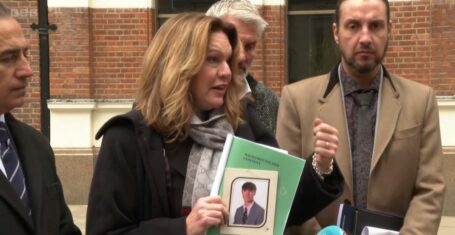
Petition calls for spending cap in SU elections after Ismail win
Fresh oranges was a bit much
Hundreds of students have signed a petition calling for a cap on campaign spending following last night’s SU election results.
Newly crowned SU President Ismail Sadurdeen has come under fire from his competitors and voters for excessive spending, in addition to allegations that he broke electoral rules during his campaign.
How much did Ismail spend on this colourful shirt?
Ismail’s victory showed that you don’t have to be a member of Karni or a major sports team to win, but has led to claims that he “bought the SU election” as a result of heavy spending on crates of oranges, t-shirts, fliers and his famous snapchat filter at various locations across campus.
The splurging looks set to continue if Ismail follows through on his manifesto, as our new President promised water fountains, more bike storage, kitchens on campus, massage chairs and sleep pods. The petition, set up by Geographer Ellen Salter, proposes the return of the financial cap for campaign spending to make sure all candidates are given an equal opportunity.
Within the petition, which currently has over 350 signatures, Ellen said: “To ensure a fair political and social system, I would like to propose the return of the financial cap. I believe this would permit a fair and level playing field for the candidates. University brings together an ecletic range of students from a range of diverse backgrounds. Your socio-economic status should not define/influence your ability in a electoral campaign.”
Speaking to The Tab, Ellen said: “I helped some friends running in the campaign and noticed some disparities between those who had made their campaign material and those who had paid for theirs.
“I got talking to students and candidates and found that those with more money had a greater advantage which caused a great deal of upset between candidates. Also students felt they couldn’t run because they had no chance due to financial limitations, so I made the petition to promote future change.
“I think for a lot of people Ismail was a problem, but I guess if he had the money and there was no cap it was his right to use it. Many felt he had an economic advantage and this would deter people from running in the future.
“I think that if the SU ensured that candidates made a note of their spending it would level the playing field and would have a psychological regulatory effect, however small, and reduce the extent to which people exceeded a budget cap.”
Dipen Patel, who finished in last place in the run for President, has criticised the spending habits of his rivals and called the election a “popularity contest”.
The losing candidate, who was booted out of the race after the second round of voting, said: “The fact that there is no actual spending cap on elections, means that students with good ideas who do not have the vast amount of resources cannot compete fairly.
“My experience with campaigning was small but effective. Our campaign’s job was to get the message about the problems the SU faces with lack of transparency, engagement and democracy, and in many cases this seemed to have worked as issues which previously were not discussed are being discussed.
Dipen Patel is still not smiling
“I’ve been hearing about rumours circulating that some campaigns may have been spending large sums of money. But the rules state a recommended spending limit of £50, so there is no enforceable limit and it gives free reign for any candidate to spend more than that.
“I’d be very surprised if it changes, the SU is extremely slow to change. It is an endless cycle of careerists who want to be elected. When in reality some of the more important work is done by those who are not in the executive, whilst their contributions are never recognised. So it’s basically a popularity contest.”
Dipen has blasted the aggressive tactics of some of his fellow candidates, and believes there is a lack of democracy within the SU.
He said: “I have heard a lot of things about a variety of candidates during this election. The ‘aggressive iPad tactic’ was surprisingly rampant in a lot of campaigns, and I even heard a few candidates received complaints about their aggressive use of iPads. I overheard someone in the SU talking about this as a tactic and they said they did not like this tactic but they said ‘If they don’t see it, No one can report it’ and its a ‘good way of getting more votes’.
“People should be voting based on manifesto rather than being pressured to vote for someone or having someone vote for them once logged into their device. If we were a democratic country this would be a secret ballot, tactics of pressuring voters in a normal democracy amounts to election fraud.”
The third-year Biochemist also slammed URN for biased election coverage, which he believes favoured certain candidates, including Ismail.
Dipen said: “The so-called URN debate I had a massive problem with. Firstly, it was marketed as a debate, which should mean arguing an exchange of ideas by candidates, but it wasn’t, instead it was a Q&A in the room. The speaking time was obviously unfairly allotted, I didn’t even speak for the first 20 minutes even though I had many views about all the topics being discussed, instead I was on Facebook because it was so boring.
“When candidates had said something that was clearly false, no other candidate was able to respond, instead the presenter took dictatorial control over this fake ‘debate’. I wanted to bring up the issues of the SU itself as an organisation and the way it operates and how there is a lack of democracy, but the questions were handpicked.”
SU President Ismail has been approached for a comment, but has not yet responded.
Sign the petition for a financial cap in SU electoral campaigns here.









































